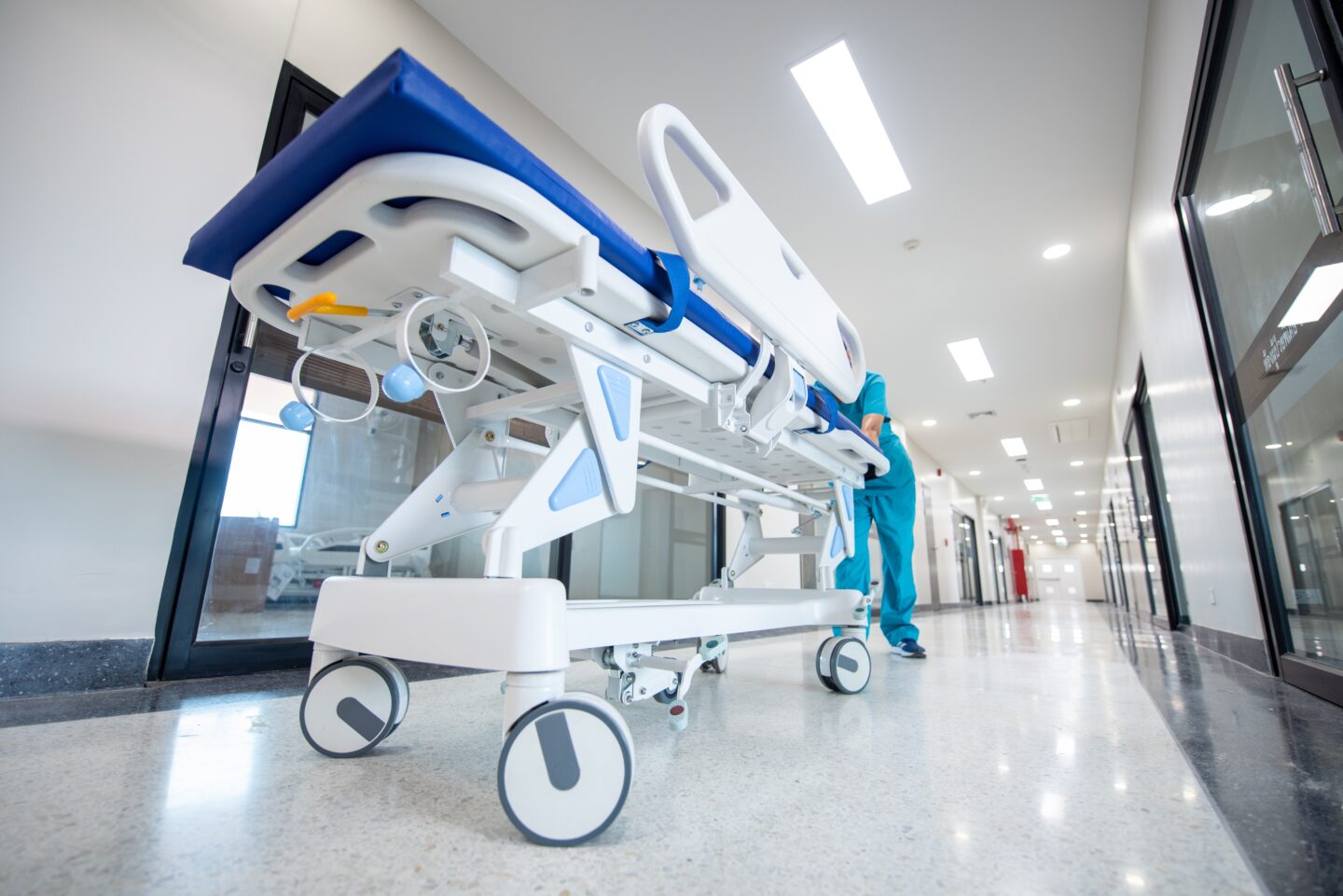
☝️ At a glance
- The MBBS program, spanning five to six years, involves an extensive syllabus, clinical training, and internships, preparing students for the demanding medical profession.
- Students face challenges like mastering a vast syllabus, balancing back-to-back classes and clinical exposure, and managing personal and social life alongside academic responsibilities.
- The prolonged duration, academic intensity, and responsibility of preparing for a career in saving lives make MBBS significantly more challenging than other undergraduate programs.
- Time management, emotional support, using effective study resources, and staying motivated are essential for overcoming the challenges of MBBS.
- Aspiring doctors can rely on futureMBBS for guidance on NEET preparation or studying MBBS abroad, including opportunities to study in Europe with top universities and world-class education.
The journey to becoming a doctor starts with a challenging yet fulfilling course: MBBS (Bachelor of Medicine and Bachelor of Surgery). It is a program designed to equip medical students with the necessary knowledge, skills, and experience to diagnose and treat patients. Aspiring students often wonder, “Is MBBS easy?” The answer to this question depends on understanding the unique demands of medical education, the rigorous MBBS curriculum, and the personal commitment required to succeed in this field.
In this article, we’ll explore the realities of pursuing an MBBS degree, the challenges faced by medical students, and strategies for overcoming them to achieve success in the medical profession.

Become a global doctor with MBBS abroad!
Studying abroad can be affordable and stress-free with futureMBBS:
- World-recognized universities with English-taught programs
- On-site support in partner university cities
- Guaranteed placements & internships for hands-on experience
From selecting universities and supporting you with the application process to orientation and finding accommodation – we are at your side.
What is MBBS and why is it important?
Understanding the MBBS degree
MBBS stands for Bachelor of Medicine and Bachelor of Surgery, representing a dual degree awarded to medical students after completing medical school. This degree is mandatory for practicing medicine as a licensed doctor and forms the foundation for a career in medical sciences.
The MBBS program spans five to six years and includes academic study, hands-on training, internships, and exposure to real-life clinical settings. It is a challenging course aimed at preparing students for the demanding responsibilities of saving lives and contributing to healthcare advancements.
The role of medical education
Medical education plays a crucial role in preparing students to become competent doctors. It provides all the knowledge needed to understand the human body, diagnose illnesses, and provide effective treatment. Medical colleges across the world offer MBBS programs designed to train students in both theoretical and practical aspects of medicine.
Components of medical education | Description |
|---|---|
Academic study | Covers subjects like anatomy, physiology, pathology, pharmacology, and more. |
Clinical exposure | Includes patient care, diagnosis, and treatment in real-life settings. |
Research and innovation | Encourages understanding of medical sciences through research projects. |
Internships | Provides practical training to apply theoretical knowledge in clinical settings. |
Is MBBS easy? breaking down the challenges
1. Vast syllabus and complex subjects
One of the primary challenges of MBBS is its vast syllabus, which includes numerous complex subjects. From anatomy, physiology, and biochemistry in the initial years to pharmacology, pathology, and surgery in later years, the MBBS curriculum demands in-depth understanding.
- Initial years: Focus on anatomy, physiology, and biochemistry, forming the foundation of medical science.
- Middle years: Transition to pathology, pharmacology, and internal medicine, requiring critical thinking and analysis.
- Final year: Emphasis on clinical settings, patient care, and real-life application of knowledge.
Subject | Key focus |
|---|---|
Anatomy | Study of the human body structure. |
Physiology | Understanding body functions. |
Biochemistry | Chemical processes within the body. |
Pathology | Mechanisms of diseases. |
Pharmacology | Drugs and their effects on the body. |
2. Entrance exam: the first challenge

The NEET UG entrance exam is the gateway to medical colleges in India. It tests a student’s understanding of biology, chemistry, and physics, along with their ability to handle a competitive exam format.
- Eligibility criteria: Requires students to score well in 10+2 with science (biology, chemistry, physics).
- Exam format: Multiple-choice questions covering a wide syllabus.
- Competition: Millions of students compete for limited seats in medical schools.

Study medicine abroad with 100% support!
futureMBBS offers full support to make your dream of studying medicine abroad a reality.
- Hassle-free admission guidance
- Fast-tracked visa processing
- Post-arrival support, including accommodation assistance
3. Demanding academic and clinical training
The MBBS course involves countless hours of study time, long classes, and practical training. Unlike other courses, MBBS students need to balance theory and practice continuously.
- Back-to-back classes: Theoretical lectures, followed by lab sessions and clinical rounds.
- Clinical rotations: Students work in hospitals, gaining real-life experience in patient care.
- Internship programs: A compulsory year where students actively practice medicine under supervision.
4. Social life vs. academic life
Balancing personal life and academic study is one of the toughest challenges for medical students. The intense schedule often leaves little room for social interactions or leisure activities.
Aspect | Impact on students |
|---|---|
Long hours | Reduces time for hobbies and family. |
Back-to-back classes | Demands time management and prioritization. |
Clinical exposure | Adds physical and emotional stress. |
The MBBS curriculum: Key highlights
Subjects in MBBS
The MBBS curriculum covers a broad spectrum of subjects, from foundational sciences to specialized fields.
Initial years: Anatomy, physiology, and biochemistry lay the groundwork for understanding the human body.
Middle years: Pathology, pharmacology, microbiology, and internal medicine build diagnostic and therapeutic skills.
Final year: Clinical rotations and internships provide practical knowledge in surgery, obstetrics, and gynecology.
The importance of clinical settings

Practical training in clinical settings bridges the gap between academic study and real-life application. Medical students work in hospitals, learning to diagnose diseases, treat patients, and make decisions under pressure.
Internships: The real-life experience
In the final year, students complete an internship, where they rotate through various departments like surgery, paediatrics, and emergency medicine. This hands-on experience prepares them for independent practice.
How do MBBS students manage the challenges?
Time management skills
Effective time management is critical for balancing the vast syllabus, back-to-back classes, and clinical exposure.
- Study schedules: Allocating specific hours for academic study and revision.
- Breaks: Taking short breaks to maintain mental well-being.
- Prioritization: Focusing on high-yield topics during exam preparation.
Support systems and resources
A strong support system can help students navigate the demanding MBBS program.
- Family and friends: Emotional support during stressful periods.
- Learning resources: Online platforms, textbooks, and professional help for academic success.
Staying motivated
Remembering the ultimate goal of becoming a doctor and contributing to the medical profession keeps students focused.
Why is MBBS tough compared to other courses?
1. Duration
MBBS takes five to six years to complete, longer than most undergraduate courses.
2. Academic intensity
The vast syllabus, rigorous exams, and practical training make it more demanding.
3. Career responsibility
Medical students must prepare for a career where lives depend on their knowledge and decisions.
Tips for aspiring MBBS students
Prepare early: Start preparing for the NEET UG exam during high school.
Stay organized: Use planners to track study schedules and clinical responsibilities.
Seek help: Don’t hesitate to ask for professional help or mentorship.
Practice self-care: Maintain a healthy lifestyle to cope with stress and long hours.
Conclusion
So, is MBBS easy? While the journey is undeniably tough, the rewards of becoming a doctor and making a difference in the lives of others outweigh the challenges. MBBS students must embrace the demanding nature of the course with dedication, perseverance, and the support of mentors and peers.
By understanding the challenges and preparing effectively, aspiring doctors can achieve their dreams of earning an MBBS degree and excelling in the medical profession. If you're preparing for NEET UG or looking to study MBBS abroad, futureMBBS is here to guide you every step of the way. Explore NEETsheet by futureMBBS to top the NEET exam for MBBS in India, or consider pursuing your dream to study MBBS in Europe with futureMBBS, where top medical universities and world-class education await.
Get in touch today for seamless guidance in securing your MBBS admission.
Read more similar articles:
- How to prepare for NEET 2025: Syllabus, strategy, exam pattern
- MBBS Duration: How many years to become a doctor?
- Internship salary during MBBS: what to expect
Your medical career abroad starts here!
Thinking of pursuing MBBS abroad? Don’t just dream it, do it!
Start your MBBS journey!
FREQUENTLY ASKED QUESTIONS
FAQs about "Is MBBS easy?"
What makes MBBS tough compared to other courses?
The vast syllabus, clinical exposure, and long hours make it more demanding.
Can MBBS students maintain a social life?
While challenging, effective time management can help balance academic and personal life.
How important are internships in MBBS?
Internships provide real-life experience, preparing students for independent practice.
What is the eligibility criteria for MBBS?
Students must clear the NEET UG exam and meet the minimum marks in 10+2 with biology, chemistry, and physics.
How can MBBS students manage stress?
Regular breaks, support from peers and family, and maintaining a balanced lifestyle can help manage stress.




